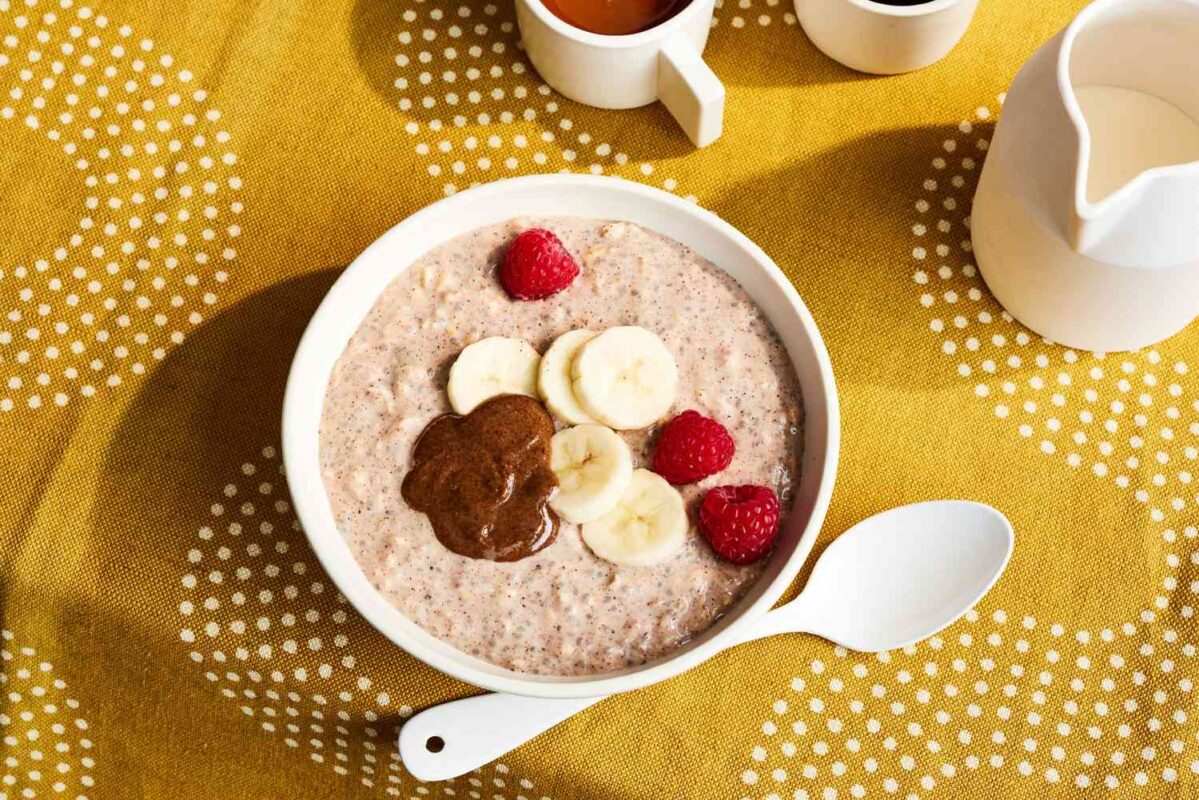Blog
Best Time to Eat Blueberries for Maximum Antioxidant Absorption

- Blueberries are rich in antioxidants that fight disease-causing free radicals.
- Eating blueberries regularly matters more than the specific time of day.
- Pair blueberries with fats or protein to boost antioxidant absorption.
Blueberries have long been celebrated as one of nature’s most nutrient-rich fruits. These tiny yet mighty berries are particularly rich in antioxidants, which play a crucial role in protecting our cells from stress. But not just any kind of stress—oxidative stress. The kind that arises when our bodies are bombarded by too many destructive molecules called free radicals. Fortunately, antioxidants, like the ones in blueberries, help ward off and neutralize these harmful substances. In doing so, antioxidants help protect our bodies from chronic diseases such as heart disease, diabetes, neurodegenerative diseases and cancer.
As promising as these benefits may be, does timing your berry intake matter when it comes to unlocking their full potential? Better yet, could what you pair them with affect how well your body absorbs their disease-fighting antioxidants? We spoke with two dietitians to answer these questions and provide additional tips and tricks to help you get the most out of your bowl of blueberries.
Types of Antioxidants in Blueberries
Blueberries are bursting with several key compounds and nutrients that have powerful antioxidant properties. These include:
- Anthocyanins: These plant pigments give blueberries their deep blue-purple color and are the most abundant antioxidants in the fruit. They are linked to improved heart health, brain function, reduced inflammation and protection against oxidative stress.
- Quercetin: A plant compound known for its antioxidant, anti-inflammatory and immune-supporting benefits.
- Vitamin C: A water-soluble vitamin found in small amounts in blueberries that helps to support immunity and combat cell-damaging free radicals.
- Resveratrol: While most commonly associated with red grapes, this natural compound is also present in blueberries. It’s renowned for its antioxidant, heart-protective and anti-inflammatory benefits.
- Chlorogenic Acid: A potent polyphenol that helps to protect cells, lower inflammation and support healthy blood sugar levels.
Bannan highlights that while each antioxidant has its own unique properties, they all work together to neutralize the harmful effects of free radicals and promote overall cellular health.
Optimal Timing for Blueberry Intake
While there is no scientifically-proven “best” time of day to eat blueberries for maximum antioxidant absorption, Patricia Bannan, M.S., RDN, emphasizes that consuming them consistently—whether with breakfast, as a midday snack or even as an evening dessert—can help ensure that you’re regularly benefiting from their protective nutrients. “What’s more important than timing is pairing them with other nutrient-dense foods to support absorption and making them a regular part of your routine,” she explains.
Maggie Moon, M.S., RDN, adds that right after eating blueberries, anthocyanin levels typically rise for a few hours before returning to baseline. But that’s not all. “Their beneficial byproducts circulate for up to two days, which is why I recommend eating berries like blueberries at least a couple times a week for brain health and overall well-being,” says Moon. Therefore, both dietitians agree that eating blueberries regularly outweighs optimal timing when it comes to reaping the antioxidant benefits.
Other Tips for Maximizing Absorption
If you want to get the most benefit out of blueberries, Bannan and Moon share a few additional tips to help you maximize their antioxidant potential:
- Pair them with healthy fats: Pairing blueberries with healthy fats like nuts, seeds, avocado or nut butter may help your body absorb and use their antioxidants more effectively.
- Eat them with protein-rich foods: Some research suggests that protein binds to anthocyanins, enhancing their absorption in the body.
- Opt for fresh or frozen blueberries: These options retain and preserve most of their antioxidant content.
- Blend them up: Blending them can also improve bioavailability by breaking down the fruit’s cell walls.
- Minimize cooking time: Prolonged cooking can diminish antioxidant levels. But overall, incorporating them into any form, whether lightly cooked, fresh or frozen, is still important to reap the benefits.
- Take care of your digestive health: Digestive problems, such as low stomach acid or gut imbalances, can also affect how well antioxidants are absorbed and utilized, particularly vitamin C.
7 Ways to Incorporate Blueberries into Your Diet
For delicious ways to make blueberries a regular part of your diet, Moon and Bannan suggest:
- Enjoying them as a snack: Grab a cup of fresh blueberries to enjoy between meals.
- Eating them with other antioxidant–rich foods: Pair them with dates, prunes, arugula, tomatoes, watermelon, cantaloupe or other berries for an extra antioxidant boost.
- Blending them into smoothies: Add frozen blueberries into your morning smoothie with a splash of plant milk or citrus juice.
- Using them as a topper: Blueberries are a delicious way to elevate your chia pudding or oatmeal.
- Whisking them into a vinaigrette: Mix together blueberry juice, balsamic vinegar, oil and a touch of honey for a tasty vinaigrette to pour over salads.
- Making fruit-infused water: Infuse a pitcher of cold water with blueberries and cucumbers for a refreshing drink.
- Elevating your drinks: Freeze blueberries and lemonade together in an ice cube tray for a fun and festive way to cool down your drinks.
Blueberries Recipes to Try
Our Expert Take
It turns out that timing doesn’t matter as much as consistency when it comes to maximizing the antioxidant absorption from blueberries. Instead, experts agree that it’s best to pair your blueberries with a meal or snack containing dietary fat, and opt for fresh or frozen blueberries when possible. Whether you like your berries blended into a smoothie, sprinkled on top of your oatmeal or on their own as a snack, eating them regularly is the best way to reap their antioxidant benefits.












